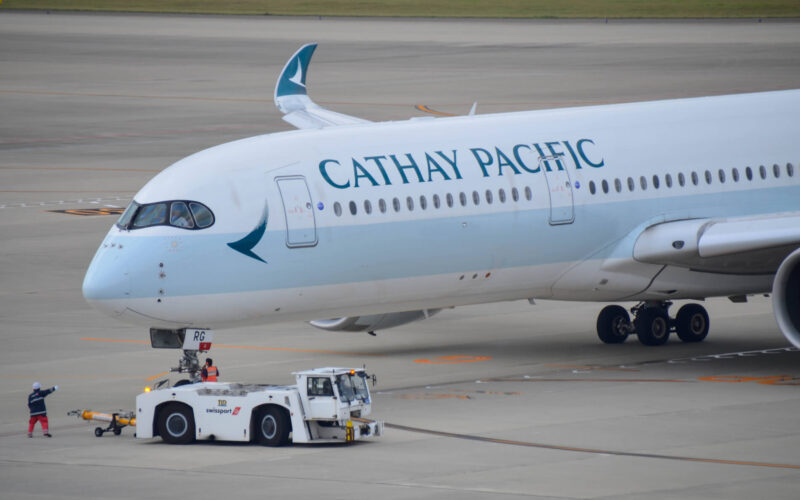As Cathay Pacific Airways is trying to preserve cash by delaying some aircraft deliveries, a new health policy unveiled by the government of Hong Kong towards U.S. citizens could add to its troubles.
When Hong Kong authorities imposed tighter testing restrictions on flight crews incoming form the United States, both United Airlines and American Airlines (A1G) (AAL) temporarily halted flights to the city, fearing that one positive test could ground the whole crew for fourteen days.
Now, the city’s very own carrier, Cathay Pacific Airways, could also see its operations being disrupted by the increasingly strict safety measures. Hong Kong Secretary for Food and Health Sophia Chan Siu-Chee announced on July 22, 2020, that all passengers incoming from the United States as well as Kazakhstan would be labeled as “high-risk”. Thus, they will have to self-isolate for a period of fourteen days in a hotel and the evidence that they actively booked a room for this amount of time will be needed to enter the city.
Additionally, they will need to prove they tested negative to a COVID-19 test as recently as three days before their flight. That specific measure may dissuade potential flyers from the United States, where testing services are submerged and getting test results on such short notice could prove impossible. Waiting times are currently much closer to a week, according to Bloomberg.
Deterring customers is hardly welcome by Cathay Pacific. Facing record-low demand (a drop of 99% in passengers in June 2020 compared to the previous year), the airline whose core business was transpacific routes reported that it expected losses amounting to $1.27 billion for the second quarter. Prior to the coronavirus COVID-19 pandemic, the carrier had already been affected by months of unrest in the city, with a 46% drop in incoming traffic to Hong Kong in November 2019.
In an attempt to preserve cash, the Hong-Kongese carrier announced that it had reached a deal with Airbus to delay deliveries of its upcoming A350 and A321neo, on July 21, 2020. The delivery of planes, expected between 2020 and 2021, would be spread all the way to 2023. Meanwhile, negotiations continue with Boeing, particularly surrounding the 21 upcoming 777X it has on order.
As it announced the approval by the Hong Kong authorities of a recapitalization plan amounting to $5 billion dollars, the carrier warned of the effect of governmental policies on its activities.
“Travel restrictions imposed by various governments have led to significantly reduced inbound and outbound passenger traffic for the Cathay Pacific Group and uncertainty over the Cathay Pacific Group’s future prospects and operations,” the airline wrote in a stock prospectus.
In addition to the $3.5 billion in loans provided by the government, Cathay initiated a rights issue of $1.5 billion.

